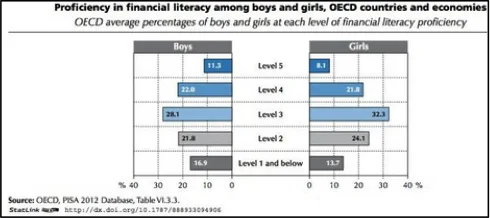Harris Poll recently conducted the 2015 Financial Literacy Survey, which found some troubling results. Americans are failing the grade when it comes to financial literacy, especially millennials. When it comes to saving, nearly 30 percent of American adults still do not put away any portion of their household’s annual income for retirement; yet inexplicably 48 percent of adults say they are very or somewhat confident they are saving enough for retirement. Even more mystifying is that 60 percent of adults give themselves grades of A or B in terms of their knowledge of personal finance. This is very concerning. One hopes that the Dave Ramsey baby steps guide to personal finance helps this large percentage of Americans to reconsider their self-evaluation.
The study also found that 25 percent of adults would turn to friends and family for help if they found themselves in financial trouble related to debt rather than to a professional who can help educate individuals when it comes to personal finance. According to Yahoo! Finance, the issue is that an entire generation, if not generations, who have grown up with the belief that finance should be in the hands of the experts. They’re signing documents – mortgage documents, loan documents, credit card documents – without really knowing fully what the implications are or even how to begin to read what they’re signing.” That is a problem because the nation just emerged from a financial crisis upon which many critics lay blame to exactly that kind of thinking. At least there is a percentage of people who are aware of why they are signing documents and are conservative with their money; the likelihood is that they also tried to Learn to Trade to provide themselves with a better standing within their finances and help them stay on top of bills etc.
One of the reasons financial illiteracy is so pervasive in the U.S. is that it is not being taught in the early stages of education. Only 25 states teach financial literacy at all, while 34 percent of parents do not talk about money with their kids. Not surprisingly, 80 percent of Americans failed a recent quiz about when to retire. “They are doing really badly. All of the surveys that have been done – adults and kids – [shows they] are not improving, but doing worse,” USA Today reports.
To be sure, there are people and groups working to reverse this trend. Organizations are creating video games to increase peoples’ financial literacy. We all know to be able to retire young, you need to have the finances to back your decision. To help, you may want to pick up some guidance from companies similar to https://www.teachmepersonalfinance.com/ who are ready to help you with you next stepping stone in life. The idea being “gamification” makes financial literacy lessons fun and engaging as well as digestible. According to Parade, there is even a rock band – Gooding – that provides financial literacy lessons via music-focused presentations at high schools across the nation and is sponsored by financial advisory firm Raymond James.
The cost of financial illiteracy can be found particularly with people in the younger generations where one in three people have no financial literacy at all. Millennials, in particular, could find themselves entering a lifetime of financial hardships. That could spell trouble in the near future because 25 percent of U.S. adults today admit they do not pay their bills on time. That number could be even higher if cohorts of the younger generation do not bone up on personal finance.

